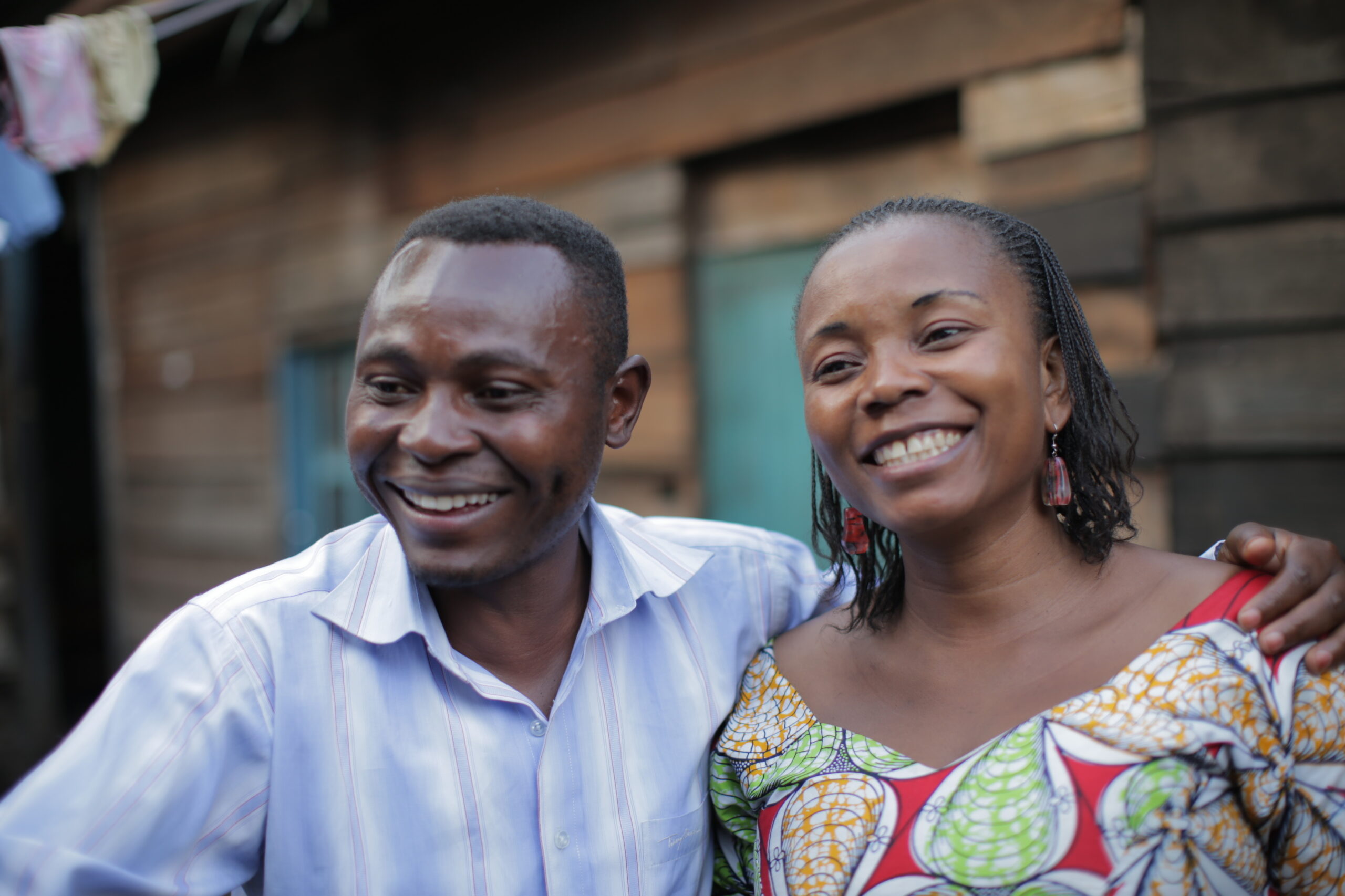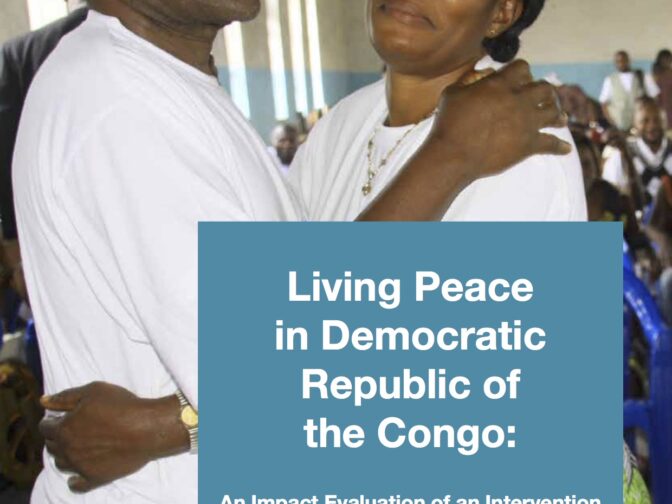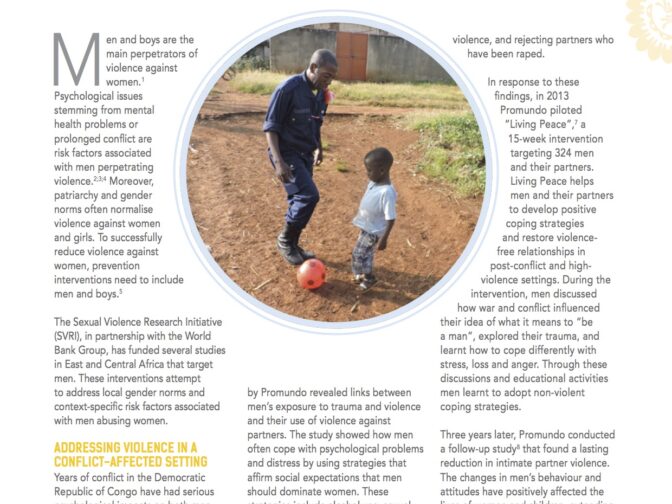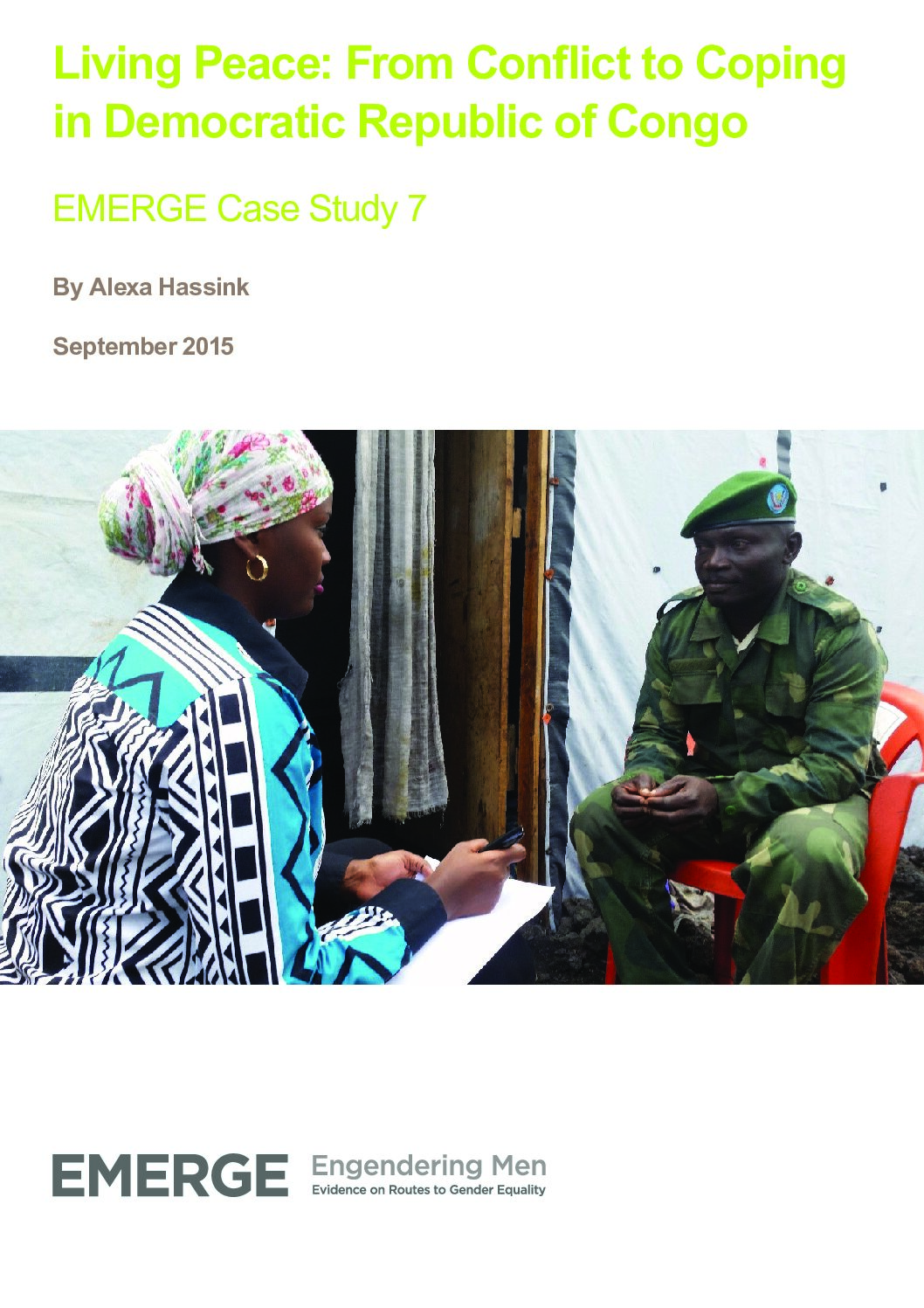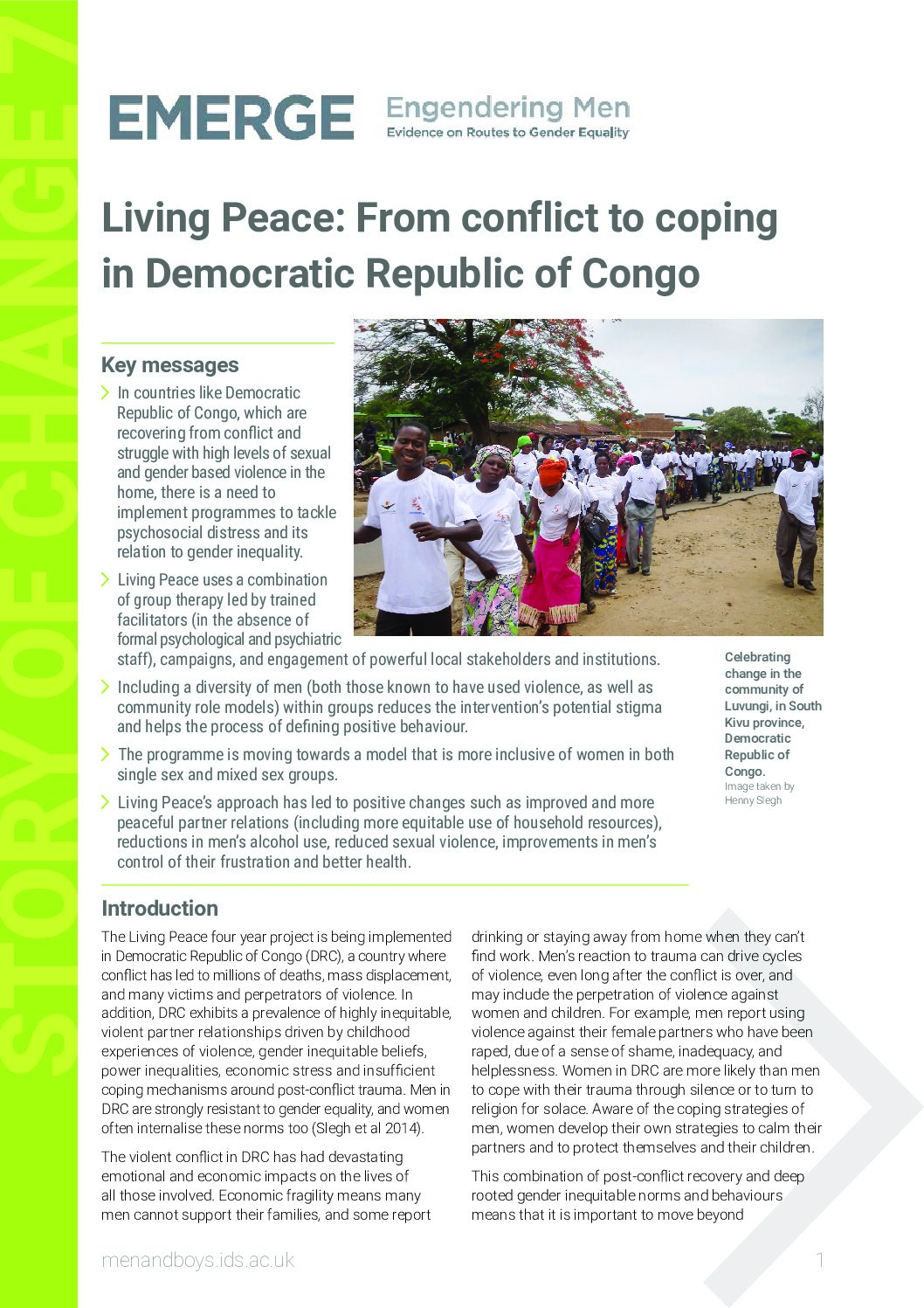Healing from trauma, and reducing gender-based violence in post-conflict or high-violence areas through group therapy intervention.
Inspired by the dearth of programming to support men and women who have been affected by violence, trauma, and displacement in post-conflict and high-violence settings, the Living Peace program was first developed by Equimundo and the Institut Supérieur du Lac (a Congolese mental health training organization) to assist participants in healing from their experiences of trauma by restoring social and partner relationships, and strengthening positive coping strategies that exclude all forms of violence.
Now implemented by the Living Peace Institute, the program methodology uses a combination of psychosocial support and group education to help men and their partners in post-conflict settings address the personal effects of trauma, while also bringing the community together in a process of social restoration, to prevent violence and promote gender equality in the private and public sphere. The group therapy process has been used with survivors of sexual violence, husbands of women who are survivors of conflict-related rape, and witnesses of genocide and other forms of violence.
First piloted in Eastern DRC in 2012 with support from the World Bank’s LOGiCA Fund, Living Peace has been adapted for implementation in settings as diverse as Lebanon, Far North Cameroon, Sierra Leone, Brazil, and the US. Results from a time-series impact evaluation of Living Peace confirm that, almost universally, male and female participants interviewed two years after their initial participation in the groups reported significant, positive changes, including (1) more peaceful partner relations, (2) reductions in men’s alcohol abuse and drinking, (3) improvements in men’s control of frustration and aggression, (4) greater income-sharing by men with their wives, (5) happier children, and (6) improved health outcomes. The Living Peace model in DRC is integrated in the training curricula of the Police and Defence forces and has been adopted by public health services and NGOs working on violence prevention among a traumatized and conflict-affected population.
